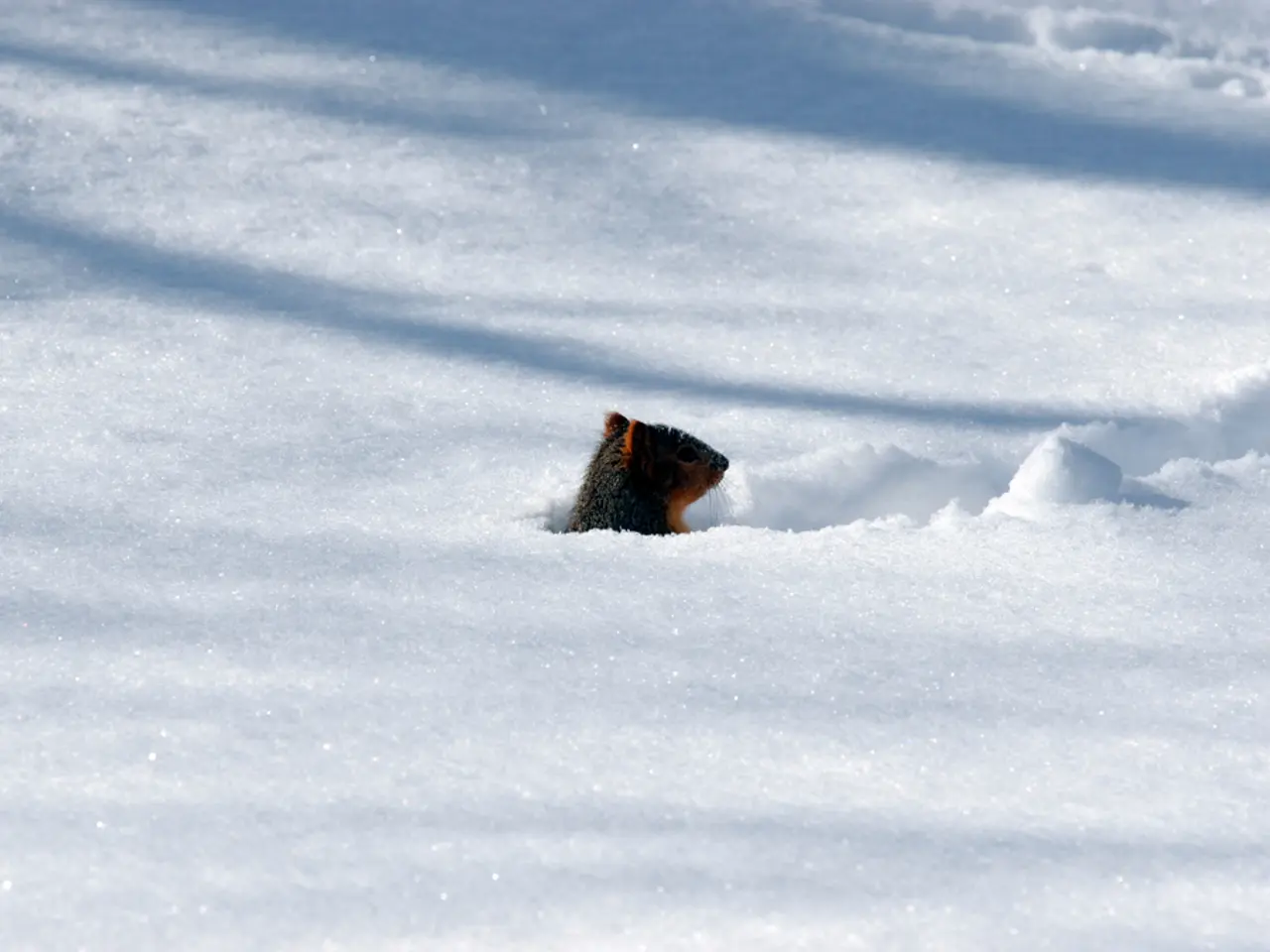Link Establishing Snow Shoveling and Heart Attacks
In the heart of winter, snow shoveling can seem like a harmless chore. However, recent research has highlighted the potential dangers that this seemingly routine activity can pose, particularly for middle-aged and older adults with existing or undiagnosed heart disease.
Snow shoveling is a strenuous physical activity that can elevate the heart rate up to 97% of its maximum, often surpassing the exertion level of a treadmill stress test. This intense physical demand, combined with the cold weather that causes blood vessels to constrict, raises blood pressure and puts extra strain on the heart. This combination can trigger sudden cardiac events such as heart attacks.
Key factors contributing to the heart risk during snow shoveling include the high physical demand, cold temperature effects, underlying heart disease vulnerability, and a higher risk in men. Habitually sedentary individuals are also at greater risk, as are those with known or silent coronary artery disease.
Research indicates a 6% higher likelihood of hospital admission for heart attack and a 34% increase in dying after heavy snowfall. Less physically fit individuals may be more vulnerable to the detrimental effects of snow shoveling.
The outlook for individuals who have experienced a heart attack depends on various factors, such as age, ethnicity, general health, promptness of response and start of CPR or defibrillation, quality of CPR or defibrillation, and neurological function during or immediately after CPR.
Medical sources advise caution, recommending that individuals with heart disease or risk factors consult their doctor before shoveling. Warning signs such as chest pain or shortness of breath during snow removal warrant immediate cessation and emergency care.
It's important to remember that the heart rate rises during strenuous exercise to supply oxygen-rich blood to the muscles. However, prolonged exertion beyond the maximum heart rate can place excessive stress on the heart, potentially leading to sudden cardiac arrest (SCA). SCA is a life-threatening condition that requires immediate intervention to increase the chances of survival.
Individuals with pre-existing heart conditions or underlying cardiovascular risk factors should consult a healthcare professional before engaging in intense physical activity. SCA occurs due to irregularities in the heart's electrical system, leading to atypical rhythms that disrupt the heart's ability to pump blood effectively. It's crucial to note that SCA is primarily an electrical issue, not a blockage in the blood vessels.
In conclusion, snow shoveling is a physically demanding activity under cold conditions that imposes acute cardiovascular stress, heightening the risk of heart attack, especially in susceptible individuals. By being aware of the risks and taking necessary precautions, we can enjoy the winter season safely.
Heart attacks can be triggered by the strenuous activity of snow shoveling, a task that can elevate the heart rate to near maximum levels and exacerbate the effects of cold weather on blood vessels. People with sickle cell anemia, a genetic blood disorder, may also face increased health risks during sports or intense physical activities due to the reduced blood flow and oxygen supply in their body.
In the realm of medical conditions, it is important to consider both physical health and mental health; heart disease is only one aspect of health and wellness. The cold weather and stress of snow shoveling can even aggravate mental health issues, especially among those already struggling with anxiety or depression.
Engaging in regular physical exercise, such as sports, can help maintain cardiovascular health, reducing the risk of developing heart diseases. However, it's vital to be aware of one's personal limitations and consult a healthcare professional if one has pre-existing heart conditions or underlying cardiovascular risk factors before pushing the body to its limits.
Lastly, preventing sudden cardiac arrest (SCA) is crucial in ensuring one's overall health and wellness. While SCA is primarily an electrical issue, prompt recognition and response, including CPR or defibrillation, can significantly improve survival rates and make the winter season safer for everyone.




